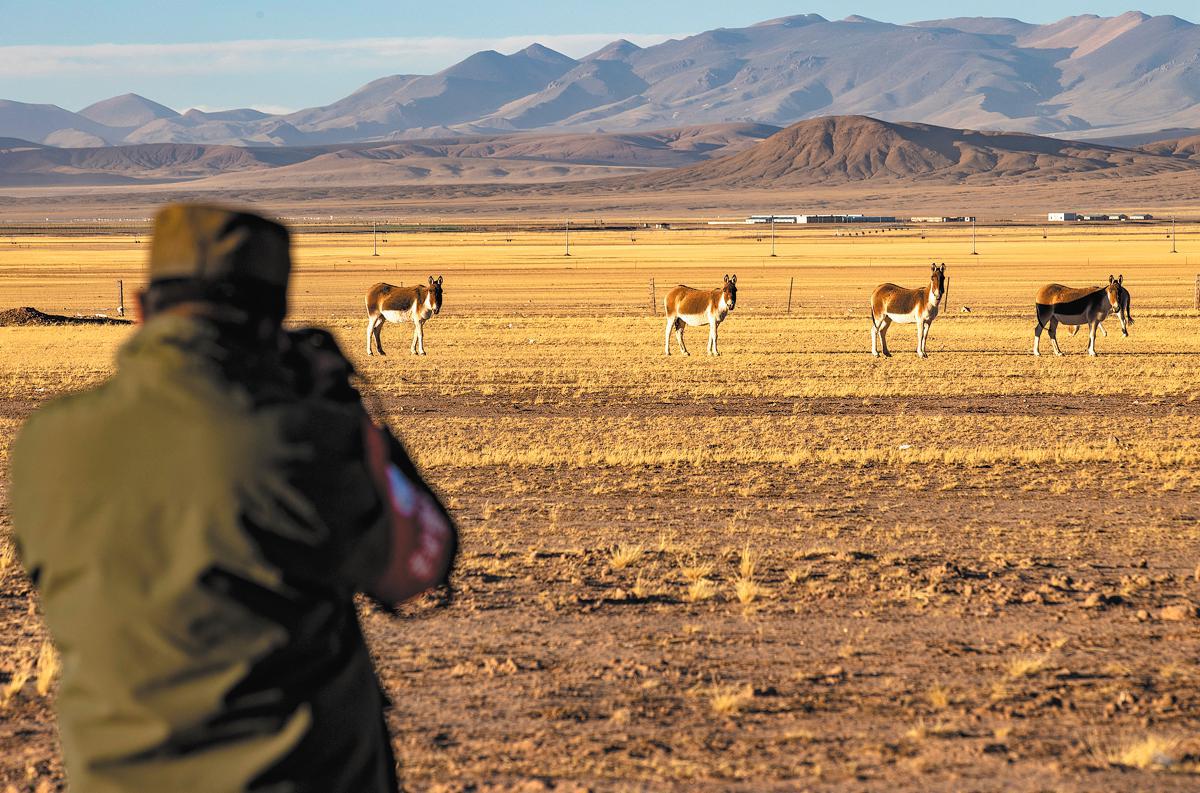Dedication of plateau patrollers moves filmmakers
Photographers tag along for migration of Tibetan antelope across 'roof of the world'


Zhang's aim on her filming trip is to learn and better understand the stories of these rangers and the role they play in protecting Tibetan antelopes.
"Most of the wildlife rangers in Xizang speak Tibetan and are not proficient in Mandarin, so their stories are pretty scarce outside of their own language," she said.
"But when we personally accompany them into the wilderness, although there isn't much verbal communication, in the scenes of rescue, their respect for life is very touching and inspiring to us."
Zhang and her team are passionate about nature, and often task themselves with staking out in the wild to capture the behaviors of wild animals as well as local flora.
During their 5-day journey across the plateau, Zhang and her team were able to assist the rangers in rescuing 43 Tibetan antelopes.
There are over 100 patrol stations in the Changtang National Nature Reserve, where thousands of wildlife workers patrol by motorbike tasked with protecting nature, preventing poaching and documenting the development of biodiversity.
"Unlike the rangers, we are photographers and want to take great photos, but when confronted with an animal in trouble we are left with a choice. However, when it is right in front of you there is no hesitation," Zhang said.
"In our work, the people we interact with the most are the front-line rangers engaged in wildlife conservation. They work year-round in the cold and high-altitude protected areas, carrying out patrols and rescue missions. They are intimate partners of wildlife, as well as our good companions and guides," she said.
A year ago, Zhang and cofounder Yang Xu set up Friends of the Himalayan Wilderness, a group aimed at documenting the stories of wildlife rangers.
Through their lenses, the lives of rangers are being better understood as well as their heart-pounding experiences in nature, such as rescuing snow leopards, discovering rare animals, sharing local folklore about deer and reminiscing about the ancient fairy tales told by their grandmothers.
"Their attitudes don't change whether they are caring for 'flagship' species or little-known ones. Whenever they encounter an animal in need of help, they wholeheartedly assist. They also give nature so much respect, maintain a distance until an animal's injuries heal, and then promptly release them back into the wild, rather than treating them as pets," Zhang said.
- China expels Japanese vessel for unlawfully entering waters of Diaoyu Dao
- Xi encourages students to actively engage in sci-tech innovation
- 5.3-magnitude quake hits Xinjiang, no casualties reported
- China's anti-graft chief urges further improving Party conduct, combating corruption
- Chinese agricultural scientists win FAO Achievement Award
- 55 officials punished for deadly January fire





































